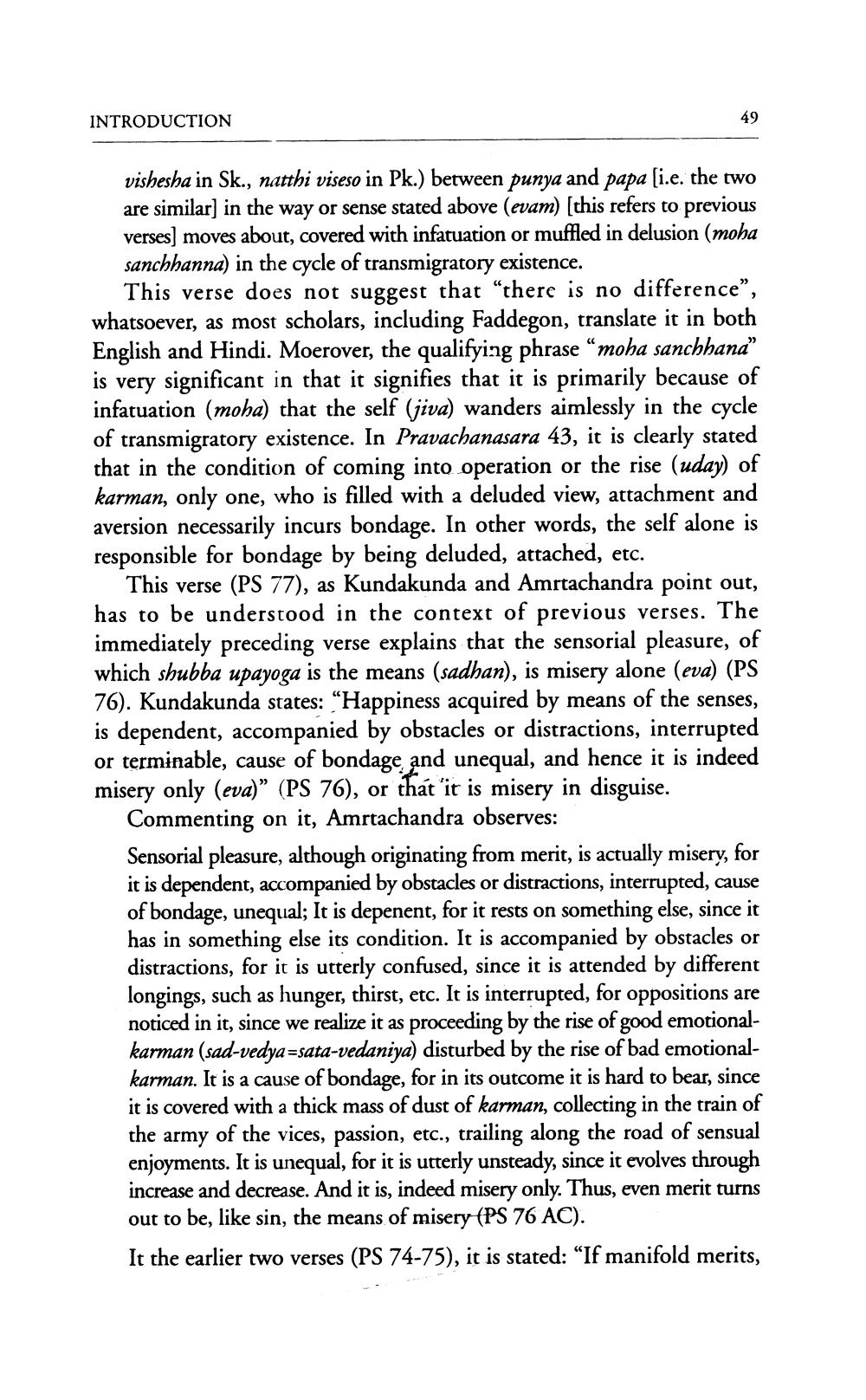________________
INTRODUCTION
49
vishesha in Sk., natthi viseso in Pk.) between punya and papa (i.e. the two are similar) in the way or sense stated above (evam) (this refers to previous verses) moves about, covered with infatuation or muffled in delusion (moha sanchhanna) in the cycle of transmigratory existence.
This verse does not suggest that "there is no difference”, whatsoever, as most scholars, including Faddegon, translate it in both English and Hindi. Moerover, the qualifying phrase "moha sanchhana" is very significant in that it signifies that it is primarily because of infatuation (moha) that the self (jiva) wanders aimlessly in the cycle of transmigratory existence. In Pravachanasara 43, it is clearly stated that in the condition of coming into operation or the rise (uday) of karman, only one, who is filled with a deluded view, attachment and aversion necessarily incurs bondage. In other words, the self alone is responsible for bondage by being deluded, attached, etc.
This verse (PS 77), as Kundakunda and Amrtachandra point out, has to be understood in the context of previous verses. The immediately preceding verse explains that the sensorial pleasure, of which shubba upayoga is the means (sadhan), is misery alone (eva) (PS 76). Kundakunda states: “Happiness acquired by means of the senses, is dependent, accompanied by obstacles or distractions, interrupted or terminable, cause of bondage and unequal, and hence it is indeed misery only (eva)” (PS 76), or that "it is misery in disguise.
Commenting on it, Amrtachandra observes: Sensorial pleasure, although originating from merit, is actually misery, for it is dependent, accompanied by obstacles or distractions, interrupted, cause of bondage, unequal; It is depenent, for it rests on something else, since it has in something else its condition. It is accompanied by obstacles or distractions, for it is utterly confused, since it is attended by different longings, such as hunger, thirst, etc. It is interrupted, for oppositions are noticed in it, since we realize it as proceeding by the rise of good emotionalkarman (sad-vedya=sata-vedaniya) disturbed by the rise of bad emotionalkarman. It is a cause of bondage, for in its outcome it is hard to bear, since it is covered with a thick mass of dust of karman, collecting in the train of the army of the vices, passion, etc., trailing along the road of sensual enjoyments. It is unequal, for it is utterly unsteady, since it evolves through increase and decrease. And it is, indeed misery only. Thus, even merit turns out to be, like sin, the means of misery (PS 76 AC). It the earlier two verses (PS 74-75), it is stated: “If manifold merits,




